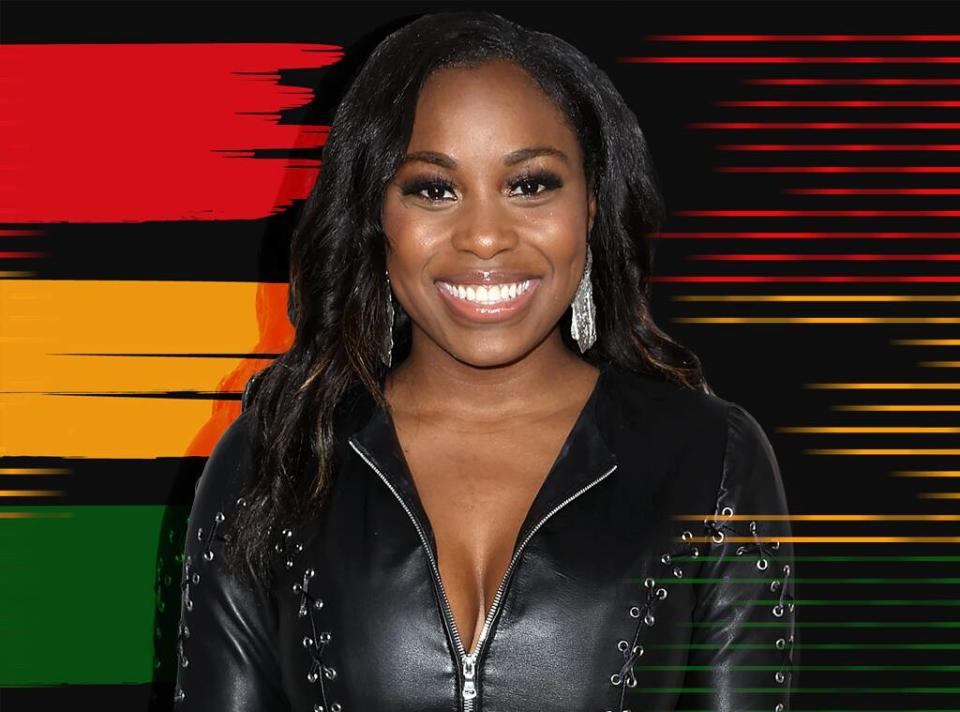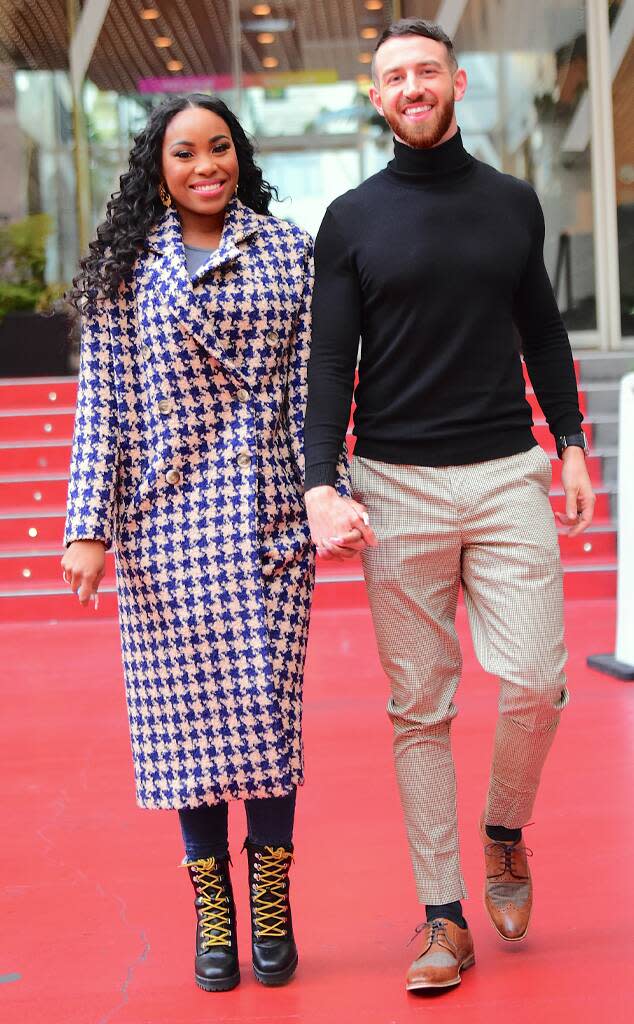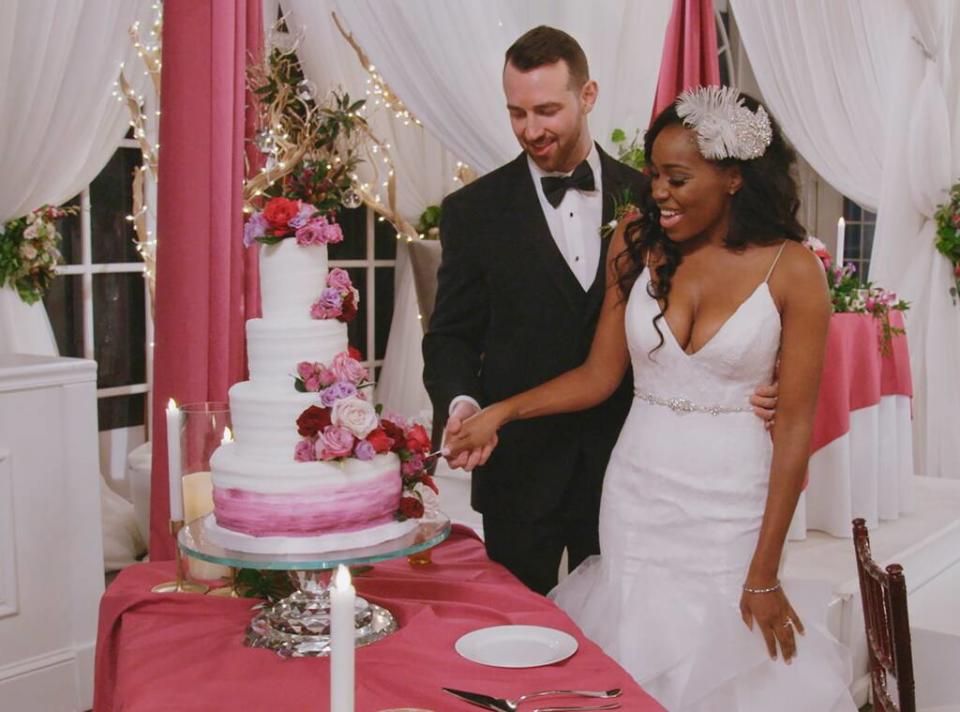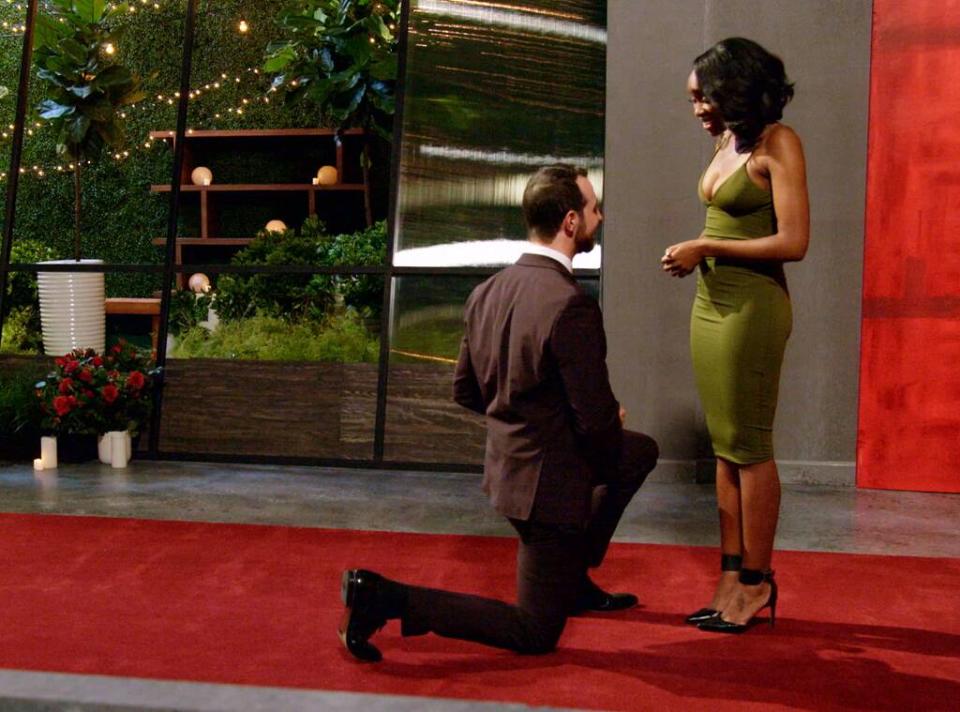Love Is Blind’s Lauren Speed Went on Reality TV to Change Your Mind About "Catty" Black Women
In honor of Black History Month, E! is talking to Black reality show contestants to reveal what it's really like being a minority on TV.
Lauren Speed wasn't used to seeing fairy tale romances when she applied to be a contestant on Love Is Blind.
In case you missed it last year, Netflix's hit reality dating series invited 30 singles to find out if love is really, well, blind by asking them to date and get engaged before ever laying eyes on one another.
"I did not think about going on The Bachelor before [for] that very reason because, just being transparent, when I watched The Bachelor I didn't really see myself represented," Speed explained to E! News. "You know you don't see a lot of Black women making it to the end or I didn't see women who represented me, so I never even thought to even go on there because I didn't see myself there. Representation means everything."
And the fan response to Speed's journey on Love Is Blind proves how important representation is, with the 34-year-old becoming the Netflix hit's breakout star quickly after its debut on Feb. 13, 2020.
17 Shocking Secrets About Love Is Blind Revealed
Now, one year later, Speed is the most-followed person from the cast on Instagram with 2.3 million followers and has a popular YouTube Channel with husband Cameron Hamilton.
Yep, Speed found her happily ever after on reality TV, delivering a love story streamed around the world. But how she and her journey were depicted was just as important to Speed, whose book Leap of Faith, which she co-wrote with Hamilton, hits bookshelves in June.

"Let me just say, initially going on Love Is Blind, it was so important for me to be myself because I had seen in reality shows in the past so many times that Black women were depicted as catty or just kind of wanting to start fights and things like that," Speed said. "I don't really see myself represented on reality TV."
And for Speed, representation meant more than just seeing a Black woman find love on television. It was seeing a variety of Black women on reality TV, in general.
While she acknowledged the importance of Rachel Lindsay's groundbreaking turn as ABC's first Black lead within the Bachelor franchise in 2017, Speed believed viewers connected with her on Love Is Blind because they saw themselves reflected through someone like her, a self-described "quirky Black girl looking for love."
Speed commended Netflix and production company Kinetic Content for really holding true to her character, saying, "They didn't try to edit it to make extra drama or anything like that."
"With Love is Blind and its success, I don't feel like that's something that was seen often, it was rare," she continued. "And I think that everyone was really excited, especially Black women and women of color really rallied around that, so that was amazing."
You Should Follow These Black Influencers and Creators
The overwhelmingly positive response to Speed and Hamilton's love story, especially on social media, is, unfortunately, a rarity in the reality TV landscape, which has long had a major divide when it comes to white contestants and cast members of color. And that may have something to do with the broad audience a streaming service like Netflix is able to reach, according to MTV reality star Leroy Garrett, who has competed on 12 seasons of The Challenge after first appearing on The Real World: Las Vegas in 2011.
The Challenge's fanbase "is predominantly white," Garrett told E! News. "If you have VH1, it's predominantly Black and that is where the divide comes in. That's just how it goes, if I'm on the network [and] that's the demographic that they cater...that is the way it is going to work out. It definitely sucks that it is that way, but I feel like it is getting better."
13 Secrets Revealed About Netflix's Dating Around
Mike Johnson, a Bachelorette and Bachelor in Paradise alum, pointed to Lindsay's lower number of Instagram followers compared to other more recent Bachelorettes and even Bachelor contestants, all of them white.
That contrast, Johnson said, is common within the longrunning franchise, and he pointed to the Love Is Blind pair specifically as an example of what viewers are responding to that the Netflix series showcased: Their authentic connection and conversations about the realities of being an interracial couple.
"People love to see that because we haven't before," Johnson noted.

"The reason that Lauren and Cameron have such a big following is because they are true to themselves," he continued. "They are not 'digestible' per say. They are just exactly who they are, as God intended them to be, and that's beautiful."
Pointing to their impressive followings across various social media platforms, Johnson said "the numbers are proving that that's what we want to see."
Speed even admitted to being "pleasantly surprised" by the response she and Cameron received on social media throughout and after Love Is Blind's three-week run.
"We've really been blessed in that way, and I'm grateful for the love," she said. "You know what, I was pleasantly surprised. I mean you always hope. Like, I hope that people can see themselves in me or they know somebody that can relate somehow."
That's not to say Love Is Blind still doesn't have a lot of work to do when it comes to diversity and representation, with Speed pointing out a major disparity in the makeup of the season one cast.
"Initially, when we started there was actually a nice handful of Black women. Unfortunately, many of them did not make it, and didn't make connections with the guys," Speed detailed. "But on the men's side I believe that there are only two Black men out of 15 men, so I do think that that was definitely…disproportionate, especially because it was filmed in Atlanta. Atlanta has a whole lot of Black people. There were only two Black men, so that was kind of shocking to me."

Speed continued that she wished it had been "more equal on that front" and added it "would have been nice to have more Black men or men of color," noting there were not any Asian men and Mark Cuevas was the only Latino man in the cast.
"I'm telling you, it wasn't a lot of people of color on the men's side," she explained, "even for women, there wasn't Asian or it wasn't that big of a mix up so that can definitely be improved."
Moving forward, Speed would like to see, in addition to more cast members of color on the series, which has been renewed for two more seasons—and within the reality TV genre in general—is a variation in the depiction of BIPOC contestants, especially Black women.
"I feel like the media always depicts this sassy, smart mouth Black woman, which you know, hey, it's plenty of black women like that," Speed said. "I have that side as well, but you know there's also, like, the goofy quirky Issa Raes and people like that, so I would just love to see, you know, just some more variety of black women. That would be amazing."
A unique experience for Black contestants on reality dating series is the pressure, sometimes unspoken, to end up with another Black person. Lindsay has talked about it in the past, addressing the backlash she received for picking Bryan Abasolo, a Latino man. And Matt James, the current Bachelor and the franchise's first Black male lead, openly spoke about anxiety over picking "a specific person of a specific race" in the premiere episode of his season.
Speed, of course, ended up getting engaged to Hamilton, a white man, before ever seeing what he looked like. And while she "tried so hard" not to wonder if Cameron was Black or white while they spoke in the pods, she admitted to initially being concerned over what the response from the Black community would be after learning he was white.

"At first, like in the show, I mentioned I had a split moment where I thought in my mind like, 'Man, I'm this, like, Black girl magic, I'm so pro-Black. I ended up engaged to a white man,'" she explained. "So I did have a moment when I was, like, 'Oh man, are people gonna judge me, are they gonna feel some type of way?'"
But, for Speed, ultimately, "Happiness shouldn't have a color" and she's felt her interracial relationship has been supported by the Black community and her family and friends.
"They love Cam, my family loves Cam. The people around me are supportive about my happiness," she said. "You know that's the most important thing to them, and that I'm being treated right."
—reporting by Amanda Williams
